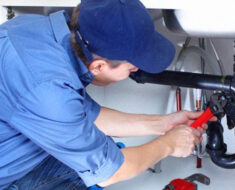
Kapolchok Law Offices
Committing to an invasive medical procedure is always unnerving. During these times, patients must rely heavily upon the knowledge and skill of medical professionals to guide their health decisions. They are also heavily reliant upon the technologies and devices that are essential for their chosen treatments.
When surgical products and procedures are safe, they can promote higher life quality and improved overall functioning. Sadly, when they are not, certain medical devices and procedures can lead to serious side effects, illness, infection, and even death. Understanding the history of defective medical devices can be a key part of knowing where to put the blame when things go wrong.
Problems With Defective Medical Devices Are Quite Common
In the medical industry, each year can bring new innovations that help expedite treatments, improve their overall effectiveness, and address many formerly untreatable issues. However, when companies offer cutting-edge device designs, they can never be completely sure of their long-term effects, particularly when corners have been cut in the related research, development, and testing processes.
While these products might perform well in short-term, limited-run studies, different variables can have surprising effects on patient outcomes. In instances in which research and testing are fast-tracked to ensure a rapid release of technologies to the public, it is patients who suffer the most. Common defective medical device recalls include:
- Artificial spine discs, hips, and knee joints
- Automatic external defibrillators
- Hernia repair systems
- Dental implants
- Vaginal and other surgical meshes
- Pacemakers
One of the biggest problems with defective medical devices is the fact that the companies responsible for their design and manufacture are often highly reticent to admit to design flaws. As such, these products can go on to cause increased numbers of side effects, injuries, and deaths, long after their dangers are known, and long before appropriate recall measures are taken.
Who’s Accountable for the Damages Caused by Defective Medical Devices
It is generally safe to assume that surgeons and other medical professionals on a person’s treatment team are acting in good faith when recommending specific medical devices. Until formal recalls have been made, doctors operate under the assumption that devices are safe for use, and that the benefits of using them outweigh the drawbacks.
Medical device manufacturers, however, are made aware of growing numbers of problems and complaints relating to their products as these occur, and they can wait for quite some time before issuing the necessary recalls. This allows them to maximize their profits before recalling their products and dealing with the resulting backlash.
The FDA Loophole That Puts Patients at Risk
Before being approved for use by the Food & Drug Administration (FDA), medical devices must undergo rigorous testing to ensure both their safety and their overall efficacy. Lobbying efforts, however, have led to a dangerous loophole that allows product manufacturers to expedite or fast-track the normal research and testing processes so that their products can enter the market sooner.
With this loophole, new medical devices that are similar to devices used before can get rapid approvals, even if the existing, comparable devices have already been recalled themselves. This is yet another way in which the drive to generate profits is placed above the well-being and health of patients by device manufacturers.
Among some of the many problems that can occur when FDA approvals are fast-tracked as the result of this loophole are:
- Insufficient quality control
- Manufacturing defects
- Design defects
- Product or materials contamination
- Faulty marketing
- False labeling
- Long-term effects that are unknown
There are certainly other issues that can occur as a result of rushed approvals. From unauthorized off-label use to undisclosed side effects, the risks of receiving treatments with these devices are always high.
Companies that manufacture defective devices have a long history of concealing information from the public, expediting research and testing processes, and taking other unethical actions to optimize their profits. Unfortunately, the effects of these actions are always most devastating to the people who rely on their products. The same technologies and appliances that are meant to improve life qualities are often guilty of greatly diminishing them.









































